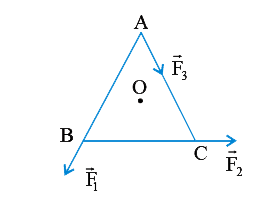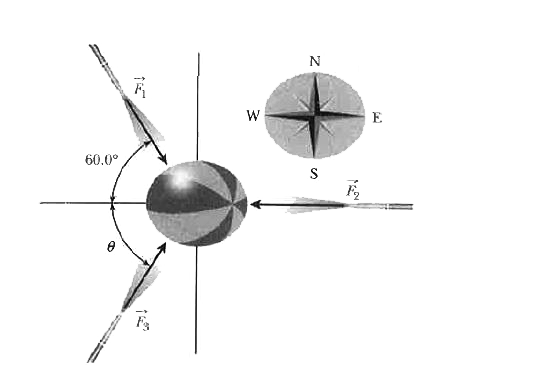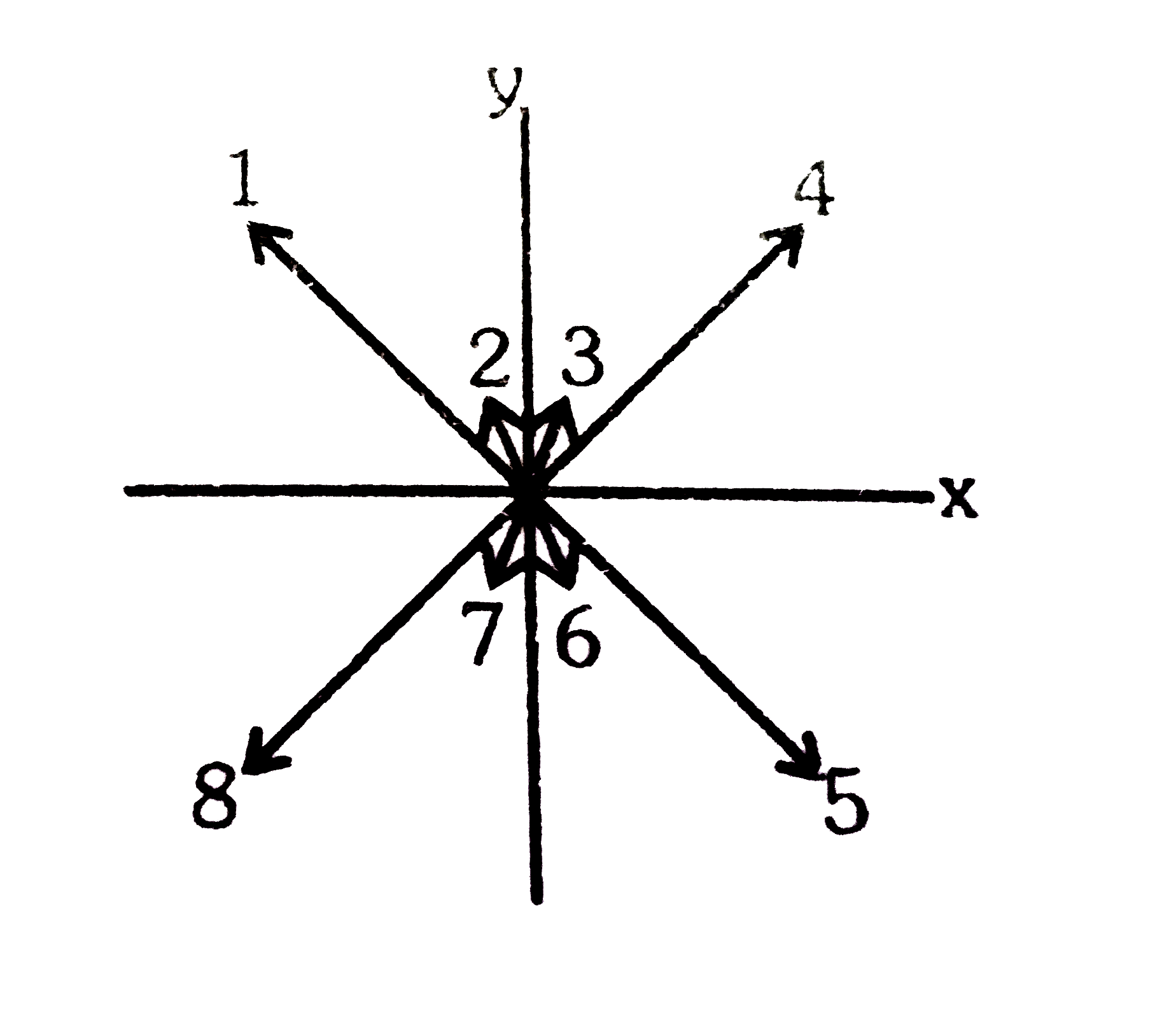Which is the greatest force among the three force →F1,→F2,→F3 shown below

Force is a vector and magnitude of the vector is represented by the length of the vector. Here →F1 has greater length compared to other two. So →F1 is largest of the three.
Topper's Solved these Questions
- LAWS OF MOTIONBook:NCERT TAMILChapter:LAWS OF MOTIONExercise:EXERCISE ( I. Multiple Choice Questions)
Explore 15 Videos
- LAWS OF MOTIONBook:NCERT TAMILChapter:LAWS OF MOTIONExercise:EXERCISE (V. Numerical Problems)
Explore 14 Videos
- LAW OF MOTIONBook:NCERT TAMILChapter:LAW OF MOTIONExercise:EXERCISE (ADDITIONAL EXERCISE)
Explore 17 Videos
- MECHANICAL PROPERTIES OF FLUIDS Book:NCERT TAMILChapter:MECHANICAL PROPERTIES OF FLUIDS Exercise:EXERCISE
Explore 45 Videos
Similar Questions
If three forces −→F1,+−→F2and−→F3 are represented by three sides of a triangle and −→F1+−→F2=−−→F3 , then these three forces are concurrent forces and satisfy the condition for equilibrium .
Statement II : A triangle made up of three forces →F1,→F2and→F3 as sides taken in the same order ,satisfy the condition for translatory equilibrium . In the light of the above statements ,choose the most appropriate answer from the options given below :
View SolutionABC is an equilateral with O as its centre →F1,→F2 and →F3 represent three forces acting along the sides AB, BC and AC respectively. If the total torque about O is zero then the magnitude of →F3 is :

View Solution
Knowledge Check
A body is under the action of three forces →F1,→F2and→F3. In which case the body cannot undergo angular acceleration ?
A−→F1,−→F2and−→F3 are concurrentB−→F1+−→F2+−→F3=0C−→F1,−→F2 is parallel to −→F3 but the three forces are not concurrentD−→F1and−→F2 act at the same point but −→F3 acts at different point.A body is under the action of three forces →F1,→F2 and →F3. In which case the body cannot undergo angular acceleration ? .
A→F1,→F2 and →F3 are concurrent, point of concurrence beign centre of mass .B→F1+→F2+→F3=0C→F1,→F2 is parallel to →F3 but the three forces are not concurrent .D→F1 and →F2 act at the same point but →F3 acts at different point .At a picnic, there is a contest in which hoses are used to shoot water at a beach ball from three directions. As a result, three forces act on the ball, →F1,→F2and→F3 (see the drawing). The magnitudes of →F1and→F2=50.0NandF2=90.0N. Using the graphical technique, determine the angle such that the resultant force acting on the ball is zero.
 A21∘B26∘C34∘D39∘
A21∘B26∘C34∘D39∘
Two forces →F1=(3N)ˆi−(4N)ˆj and →F2=−(1N)ˆi−(2N)ˆj act on a point object. In the given figure which of the six vectors represents →F1 and →F2 and what is the magnitude of the net forces

View SolutionThe resultant of the forces →F1=4ˆi−3ˆj and →F2=6ˆi+8ˆj is
View SolutionWhich of the four arrangements in the figure correctly shows the vector addition of two forces →F1 and →F2 to yield the third force →F3
View SolutionA body is at rest under the action of three forces, two of which are →F1=4ˆi,→F2=6ˆj, the third force is
View SolutionThe resultant of the forces →F1=4ˆi−3ˆj and →F2=6ˆi+8ˆj is
View Solution
